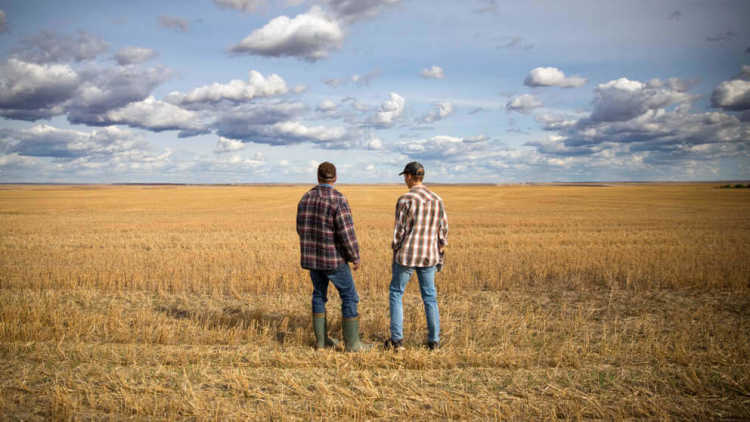How to cover all the bases with a land rental agreement

It doesn’t make sense to pay to use a piece of land, invest time and effort into raising a crop and not even have a piece of paper that outlines an agreement with the owner.
A written land rental agreement is a critical, yet often neglected, piece of farm business.
Yet it’s something James Steele and Travis Kusch, lawyers at Robertson Stromberg LLP, say they see repeatedly, as well as handshake agreements and handwritten rental deals. Across the country, none of these informal agreements are sufficient if there's a disagreement and the rental matter ends up in court. Overall, having a written land rental agreement in place is a critical, yet often neglected, piece of farm business that could save both parties time and money if anything with the rental ever went wrong.
The foundations of a rental agreement
A rental agreement needs to include the following:
Include all the details
A rental agreement needs to be longer than a one- to two-page document and include as many details as possible. Kusch and Steele say they often see producers show up with an agreement where the term and rate have been determined but not much else.
A rental agreement document must spell out the obligations and consequences and what happens if conditions aren’t met. For example, who is responsible for repairing and paying for the fence or who pays the property tax.
“If that isn’t laid out there, both the landlord and tenant are going to be left confused as to what their rights are and what their obligations were,” Kusch says.
Agreements may also include details like only growing specific crops or the need to be organically certified.
While it’s OK for the landlord to have housekeeping items like removing weeds in the agreement, ensure the tasks aren’t too difficult for you as a renter, such as perfect weed maintenance throughout the entire property.
And what about buildings? Do you, as a renter, plan to build a shop or make-shift structure?
Renters need to clarify ownership of structures built during the rental and confirm they can load that building on a semi and truck it elsewhere once the lease concludes. Otherwise, it can become the landlord’s property.
Canadian landlords also need to ensure the proper insurance is in place for what’s on the land, such as existing buildings like a farmhouse.
“If the land comes with a farmhouse that someone is living in, then the insurance requirements go up even further, and both landlord and the tenant must have insurance,” Kusch points out.
Transition planning
When transitioning the farm to the next generation involves rented land, Steele notes again the importance of details.
The land you rent could be sold as part of the landlord’s transition or the landowner could die during your rental period. Thinking ahead and having a plan in place as part of the land rental agreement will help in case the situation ever arises.
Steele says it's also essential to make sure the signatures of all the landowners are on the rental agreement so it stands up in court.
“Let’s say there are four siblings on the title because their dad left the land to all four of them; however, only one of them lives in the area, and that person is the only one doing dealing,” Steele says. Nationwide, if a dispute ends up taking the rental agreement to court, one signature would not be enough – all landowners must sign.
What happens if the agreement is breached?
While Kusch says it’s unusual for a landowner to immediately kick someone off property when rent is missed or another condition isn’t met, a written description in the rental agreement of the next steps helps everyone.
It’s common for agreements to have wording that says if there is a breach, such as a missed rent payment, the renter has 15 days to remedy the situation before further action is taken.
Do your research
Know what you’re renting. Find out the background of the property to avoid any surprises later. If there are liens against the property or if criminal activity has happened on the land, there's a possibility the property will be seized from the owner, also leaving you without rental land.
This is also why it's essential for you as a renter to register the lease against the title, since in most provinces, what you see in the title is what you get.
Overall, Steele and Kusch agree that having a detailed land rental agreement will help protect your considerable investment in the land you're farming.
Resources
Once an initial agreement between the landowner and renter is reached, it’s time to get the details down in writing. Visit a lawyer to ensure the document is binding and nothing has been overlooked. You can also check out online resources. Steel and Kusch say to make sure any resources are applicable for your province. If not, the agreement won’t help settle any disputes.
A book available for purchase with tips and sample land lease agreements.
Article by: Craig Lester

A case study on one couple’s approach to dividing the farm up between their two children.